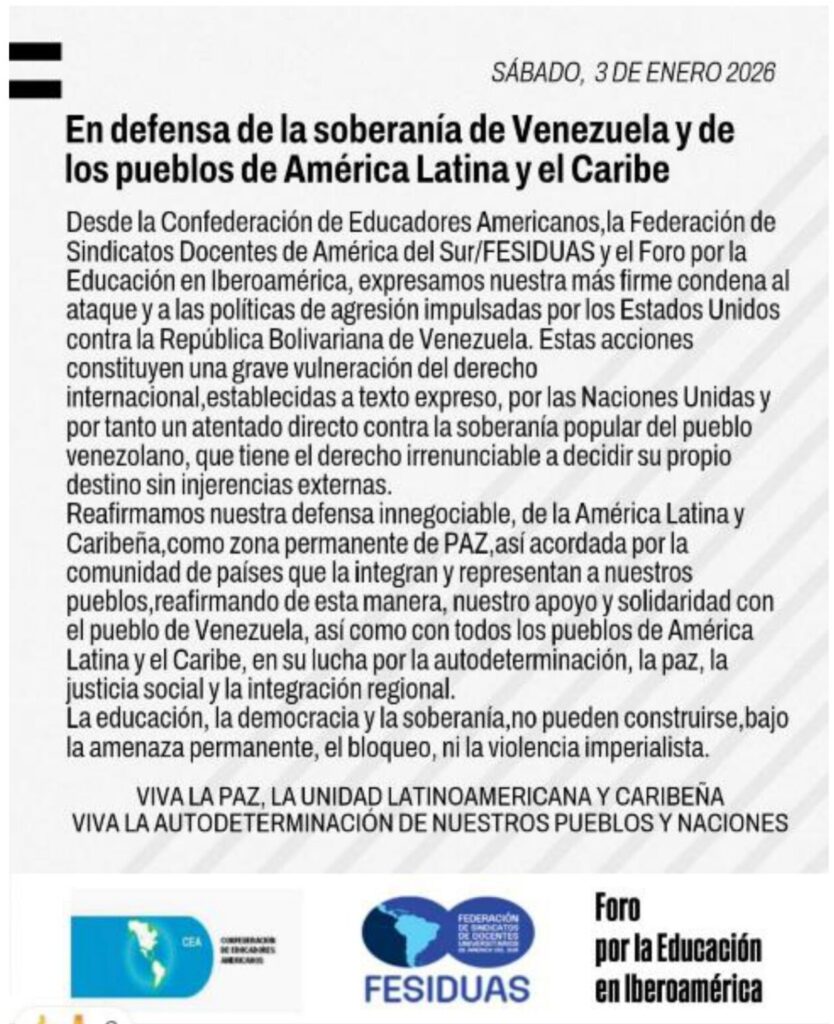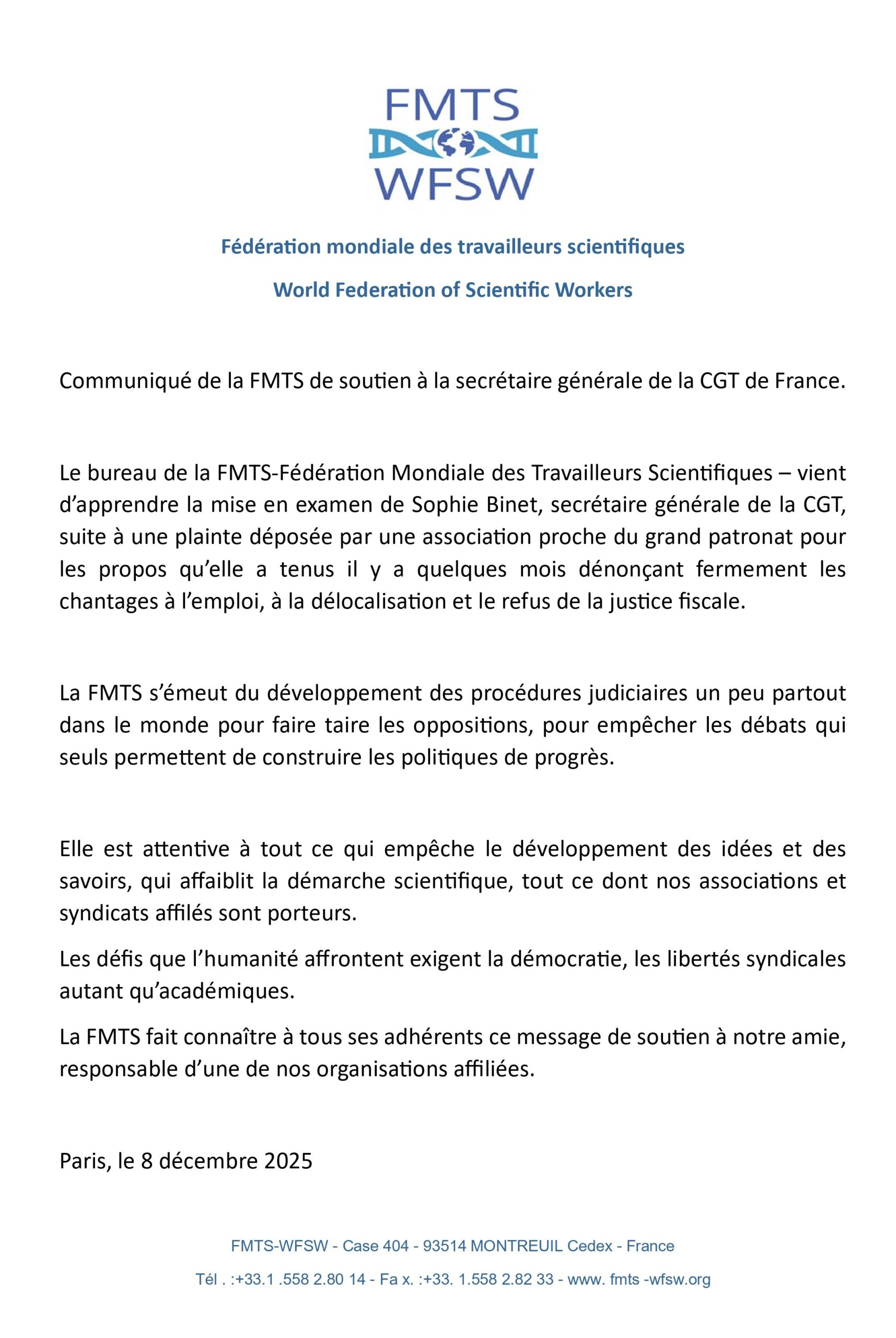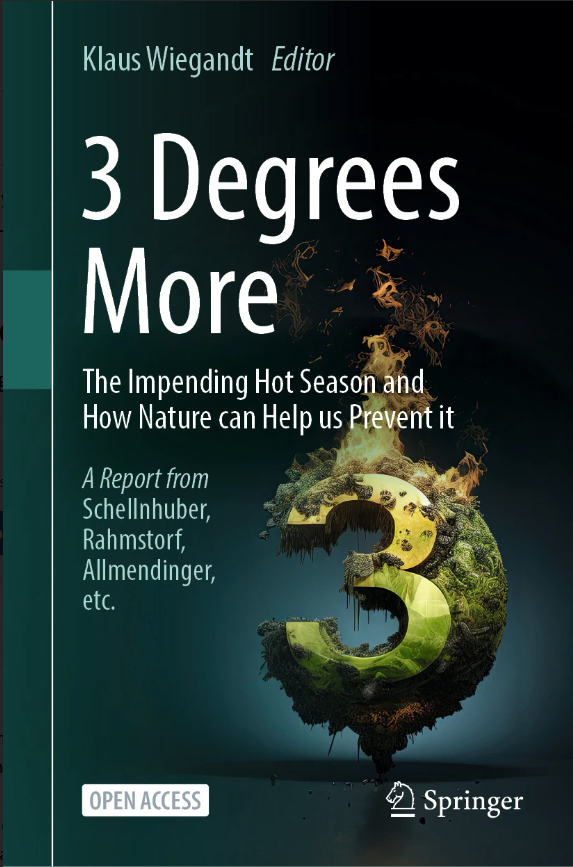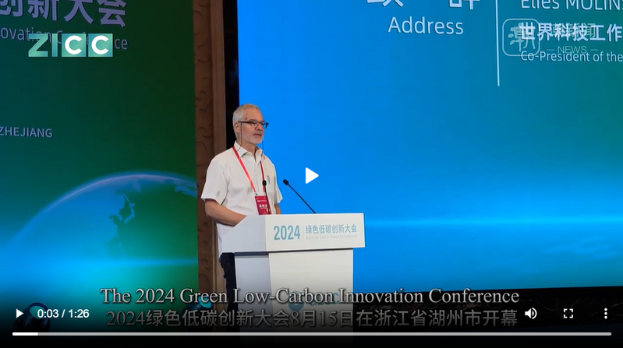Safeguarding Peace
The United Nations, NATO and geostrategic balances in Europe and elsewhere
In the aftermath of WWII that brought such extraordinary suffering and destruction to almost every country on Earth, a representative group of scientific workers that included renowned founders of the WFSW, took upon themselves the all-important task of mobilizing their fellow workers and public opinion to the absolute necessity of safeguarding Peace by abolishing nuclear weapons and disarming. As time went by events known to all have shown that the great powers with opposite geostrategic interests having set aside the objective of eliminating weapons of mass destruction, progressively took steps to set up a balance of forces intended to ensure that the prospect of mutually assured destruction was the key to prevent world war. The major western powers having strongly positioned themselves against communism and the socialist states that emerged from the October 1917 revolution in tsarist Russia, the consequences of this stance pervaded the entire 20 th century.
After the defeat of nazi-fascism in 1945, during the period of the so called “cold war”, a balance of power sufficiently adequate for the envisioned purposes could be maintained at the expense of colossal investments in manpower, material and financial resources that should have been used to alleviate the sort of billions of human beings living in conditions of malnourishment and poor health. Although several conflicts regularly flared up in different parts of the planet world war was avoided although in several occasions mankind narrowly escaped nuclear extinction trough human miscalculation or faulty device operation.
Antagonism and mistrust have today reached new highs. After the fall of the Berlin wall new walls proliferate that are already standing or have been announced, for different reasons and in different parts of the world. Walls of any kind are a threat to peace and stability. An escalation of tensions in Europe, in the Middle East and in South East Asia in the course of the last few years is particularly alarming.
The United Nations System, in urgent need of reform, has proved incapable of fulfilling the role that has presided over her establishment in the years that immediately followed the Second World War: to substitute diplomacy for conflict, promote social and economic development and a fair distribution of wealth among nations. The presumably defensive alliances between powers, of which the Warsaw Pact and NATO are paramount examples, followed different paths. While the Warsaw created in 1955 after the integration of West Germany into NATO, was dissolved in 1991, the NATO alliance founded in 1949, still exists and has enlarged both the number of member parties and its geographical scope. NATO and the United States that are by far the largest operator of overseas military bases, have acted several times in contravention to the established in Chapter VII, Article 29, of the Charter of the United Nations, namely, that “the Security Council shall determine the existence of any threat to the peace, breach of the peace, or act of aggression and shall make recommendations, or decide what measures shall be taken (…), to maintain or restore international peace and security”.
Hopes of stable peace in Europe based on compromise and respect of mutual interest suffered a severe blow with the 2002 unilateral US withdrawal from the Treaty on the Limitation of Anti- Ballistic Missile Systems (ABM Treaty) in force since 1972 of which the US and the USSR were the sole signatories. This opened the door to the new arms race that the world is witnessing in the present day.
In the last few years NATO is reinforcing its military presence in Eastern Europe, in particular, in the Baltic States and Poland. New military bases and other facilities have been set up; joint military exercises involving troops from several NATO member states take place in close vicinity of the borders of the Russian Federation. Several Eastern European countries have joined NATO since the fall of the Soviet Union. Such developments are increasing tensions between the two major nuclear powers and are thus a bad omen for the future of world peace. In this context it is important to note that it has been established beyond reasonable doubt that NATO’s expansion into Eastern Europe violates commitments made during the negotiations over German reunification. 1
Seventy one years since atomic bombs destroyed Hiroshima and Nagasaki an overwhelming majority of our fellow citizens have little idea of what we face today. The major nuclear powers did not achieve an effective agreement on the respect of either the letter or the spirit of the Nuclear Non-Proliferation Treaty of 1970.
Last is the decision by the current White House to spend upwards of $1 trillion in the so-called “atomic revitalization program” aimed at the development and testing of smarter atom bombs of great precision, smaller and stealthier. This will in fact lower dangerously the so-called “nuclear threshold” that is the circumstances under which it is “acceptable” to employ nuclear weapons in a possible war theater or even against non-military targets.
Pope Francis has repeatedly talked about the threat of war. In his recent visit to Poland while on board the flight from Rome to Krakow, he has stressed that the world is at war “a third war in instalments” and that this war “is not a religious war”: “It is a war of interests, a war for profits (“per i soldi”), it is a war for the natural resources, it is a war for the subjugation of peoples. That is what this war is.” 2 The war in “installments” associated with widespread terrorism and insecurity, is spreading seeds that may lead to world war .It is quite improbable that nuclear weapons will then not be used with the extinction of life on Earth as a consequence. Honouring her statutary principles, the WFSW hereby appeals to all scientific workers beyond their specific fields of expertise, beliefs or ideological allegiances, to exercise their capacity of critical analysis of the present circumstances engaging the future of our common house ― the Planet Earth ― the safeguarding of life and wellbeing of our fellow citizens and to contribute to influence public opinion in favour of the adoption of sane policy options at all levels of decision in society.




